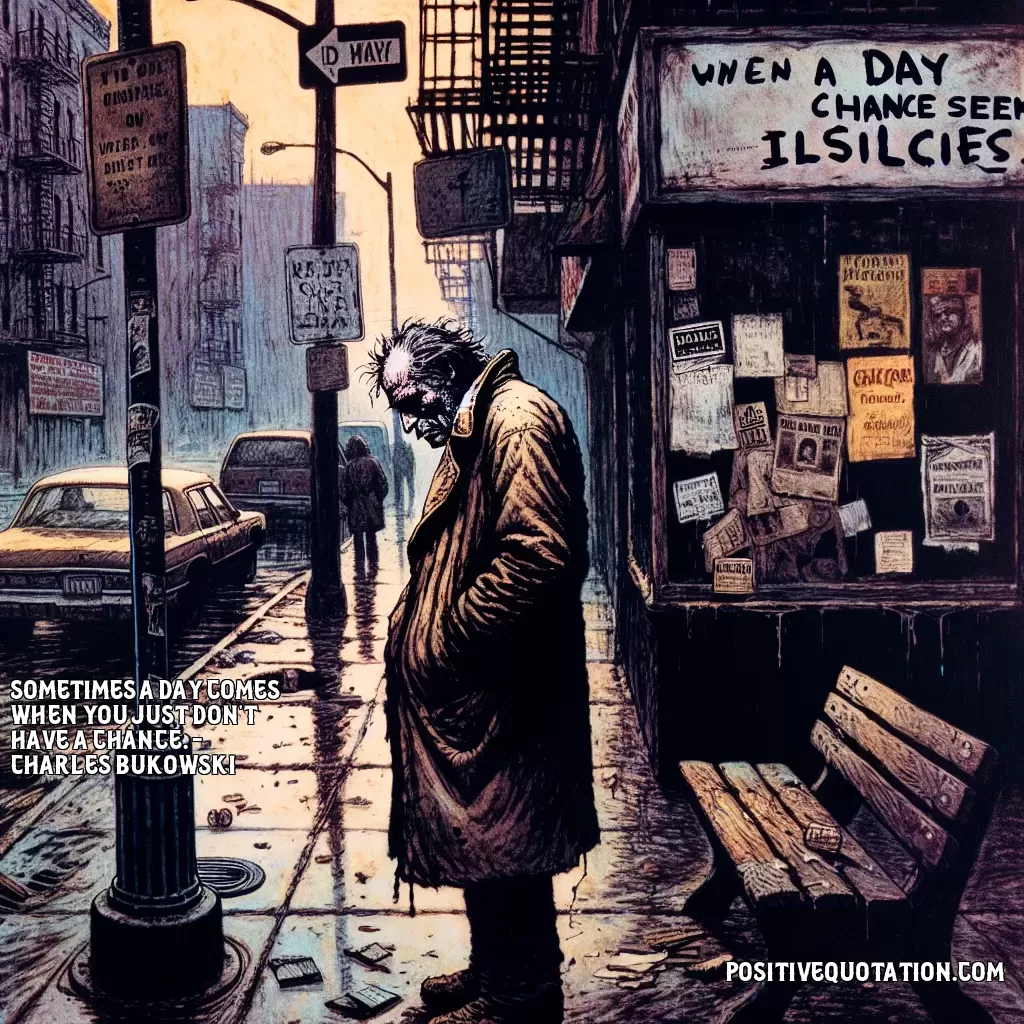
Sometimes a day comes when you just don't have a chance. - Charles Bukowski
Author: Charles Bukowski
👁️ 33 views

Sometimes a day comes when you just don't have a chance. - Charles Bukowski
👁️ 33 views
The quote "Sometimes a day comes when you just don't have a chance" by Charles Bukowski reflects the inevitability and randomness of bad days in life. In essence, it speaks to the universal experience where despite our best efforts and intentions, things simply do not go our way. Bukowski, known for his raw and candid portrayal of life's struggles, captures a profound truth about human existence: not every day can be a winning day. From one perspective, the quote can be seen as a reminder to embrace the imperfection inherent in life. No amount of planning, skill, or good fortune can entirely shield us from days when we are unable to succeed or achieve our goals. These days test our resilience and patience, reminding us that setbacks are a natural part of life. Acknowledging this can help us cultivate acceptance and develop the mental fortitude to persevere through challenges. Moreover, the quote underscores the importance of self-compassion. On tough days, we often tend to blame ourselves and succumb to frustration. However, Bukowski suggests the futility of this mindset, inviting us to recognize that not every situation is within our control. Understanding this can relieve an undue burden from our shoulders, allowing us to navigate through difficult times with grace and self-kindness. Finally, recognizing that "a day comes when you just don't have a chance" can encourage a shift in perspective. Instead of measuring the quality of our lives by single days of failure, it invites us to look at the bigger picture, where such days are only a fraction of our entire journey. By doing so, we learn to cultivate hope and recognize that after every storm, there is an opportunity for a fresh start. This resilience and optimism are key to enduring and thriving despite life's inevitable setbacks.
Quote By: Charles Bukowski
Charles Bukowski was an influential American poet, novelist, and short-story writer born on August 16, 1920, in Andernach, Germany, and raised in Los Angeles, California. Known for his raw, unfiltered writing style and gritty depictions of urban life, Bukowski often drew from his own experiences of poverty, addiction, and relationships. His most famous works include "Post Office," "Factotum," and "Women," which explore the struggles of the downtrodden and marginalized in post-war America. Bukowski passed away on March 9, 1994, leaving behind a legacy that continues to resonate with readers and writers alike.
Bio added on: 2025-02-18 03:30:47